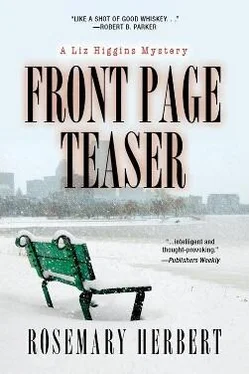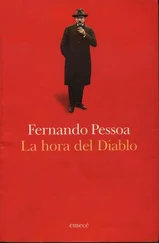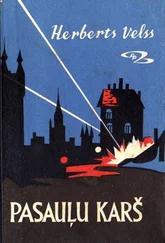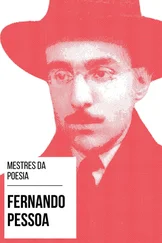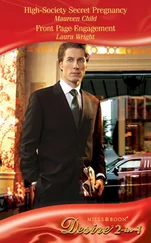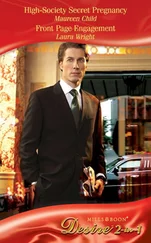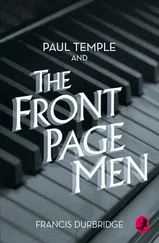Hearing this, Liz stepped a little harder on the accelerator and made her way to the Mass Pike. This took her straight past her house and the billboard above it. The latter formed an amusing tableau, since half of the billboard still showed a rain-splashed scene and the words “DON’T BE CAUGHT,” while the other half showed a flashy red sports car zooming down a snaking road straight for the vodka bottle.
“At least the dealership name is not on that half of the billboard,” Liz thought. “Old Man Maksoud would be fit to be tied if he saw this combination of ads.”
The next few billboards along the pike advertised the Museum of Science—“IT’S ALIVE!”—and the Boston World —“The sun never sets on our coverage.”
“They don’t even give their own ad uppercase type,” Liz laughed to herself.
There was no billboard in sight for her newspaper. The Banner made up for that with huge advertisements for itself on the sides of their newspaper delivery trucks. With circulation done for the day, these vehicles were packed into the parking lot, making it harder for Liz to find a space for the Tracer. Backed by an image of the American flag unfurling in a wind, the ads on the trucks proclaimed the Banner ’s well-known slogan—“STAR-SPANGLED REPORTING!”—in uppercase type.
Under icy gray clouds that looked loaded with snow, Liz hurried from her car to the Banner ’s brick edifice. Liz rushed down the ink-stained hall that led past the huge room filled with printing presses, only stopping to grab a can of orange juice from the vending machine before heading to the photo department. She flung open the door to see René working on the Mac on photos of a fire.
In a rare move, Dermott entered the photo department at that moment. Usually, the photographers came to him.
“How you doin’ on those fire shots?” he demanded.
“They’re coming along. What’s the hurry?”
“We’ve got a goner, now, so the story may go front page. Especially if you’ve got a wham-o shot. Hey, is that a figure behind the flames there?” he asked, scrutinizing the photo now displayed on the computer screen.
“Could be. I think it is.”
“That does it! Print that one pronto. I want it in time for the news meeting.”
“Sure, Dermott. I’ll have it for you ASAP.”
“Have it sooner!” Dermot said, rushing out of the room.
“Yeah, I did get a chance to print the photos—not all of them but enough to get you started, I hope,” René said, anticipating Liz’s question. “As you can see, they sent me to a fire scene. Your prints are in my cubbyhole there, in a manila envelope. You won’t find any enlargements of details. There just wasn’t time. I’ll get to the rest as soon as I can.”
“Thanks, René. I owe you,” Liz said, and handed him Ellen Johansson’s film.
“That’s true enough!”
“Looks like a woman in the flames there. That’s a great shot, René. Upsetting, though.”
“Another case of the camera seeing more than the eye. I just kept shooting. It was only when it came up on the machine that I knew what I had.”
“I’ll let you get to it,” Liz said, collecting the manila envelope from DeZona’s cubby.
“Just so you know, Manning’s hounding the hubby in your Newton case. And the medical examiner thinks the mom may have manipulated the scene.”
“You mean in the kitchen?”
“That’s right.”
“What makes him think that?”
“Manning will explain in tomorrow’s Banner ,” Dermott said, standing in the door. “For Chrissake, let DeZona get on with his work! Now what have you got for me on the mystery mavens? Whatever it is, you’d better be able to spell it out in six inches. Between the freakin’ fire and the missing mom case, there’s a squeeze on for space.”
“Six it is!” Liz said. For once, she was relieved to have little space. It would allow her to file her story and head out again. “I’ve got Mary Higgins Clark and a private eye telling mystery fans how they go about their work. You could head it, ‘HOWDUNIT?’”
“We’ll see about that,” the city editor said.
At her desk, Liz took out another granola bar and opened her orange juice. Then she scanned her contact list on ATEX and dialed the Children’s Enrichment Aftercare Program.
“Laura left for the day,” a receptionist informed her. “May I take a message?”
“Isn’t it early for her to leave?”
“It is, actually. But she’s helping out with a child who’s been traumatized.”
“Veronica Johansson?”
“How did you know? And whose mom are you?”
Liz hung up without answering. Then she wrote an unremarkable, six-inch story about the mystery conference. While she was writing, the message “File and fly rule in effect’’ flashed at the top of her screen. She looked out the window. Heavy snow. Marvelous! This meant she could send the story into the system and split. Liz pulled a file photo of Mary Higgins Clark from the Banner ’s photo library, turned it in at the city desk, and returned to her desk.
She looked in the West Suburban Boston phone book for Laura Winters in Newton. No Laura there, so she turned to the Boston book. A “Winters, L.” was listed at a Brighton address. Liz noted the address on Summit Street, took down the phone number, then dialed the latter. A perky voice on the phone answering machine invited her to leave a message. It sounded like the daycare provider. Again cursing her lack of a cell phone, Liz left a message with her work and home phone numbers. On impulse, she said she’d be at the Green Briar around 7:00 p.m., and invited Laura to call her there. Then she phoned Veronica’s home. If she didn’t catch Laura Winters there, perhaps Erik Johansson would pick up.
“Hello there! You’ve reached the Johanssons’ voice-mail box. If you’d like to leave a message for Erik, Ellen, or Veronica, go right ahead after the beep,” announced Ellen Johnasson’s recorded voice. Just as though nothing had happened to her.
The cheerful ordinariness of the message stopped Liz cold. She had sipped tea with this woman, even held Ellen’s traumatized child in her arms. But in her quest to grab the front page, she’d offered only cold comfort. Now, miles from their home, she did the best she could to embrace Ellen’s shattered family more warmly.
“I’ll find you, Ellen,” she said after the beep. “I’ll bring you home.”
As she pulled on her coat, she saw a copy of the front page that had been prepared earlier. “A PINCH OF BLOOD,” its headline read. It would never run, since the story had been bumped off Page One by the fire fatality. On an inside page there’d be smaller type and less hype.
And because it would never run, the rejected page was fair game. Liz snatched it up and made a swift exit into a driving snowstorm.
The Banner ’s parking lot was normally a litter-strewn expanse of concrete, old-model cars, and newspaper delivery trucks. But now the fast-falling snow softened every angle, transferring this urban eyesore into a winter wonderland. If there had not been a missing mom or fire fatality, Banner headline writers might have been playing with words like “GUARANTEED WHITE,” since this snow would surely stay on the ground until Christmas. Unless Ellen Johansson showed up in the six days remaining before the holiday, the little girl who started out the season finding the area’s best Santa would not find her Christmas to be merry and bright.
Shivering, Liz approached the snow-covered Tracer, unlocked it, and took out her combination windshield scraper and brush. As she pushed snow off the spoiler designed to improve the aerodynamics of her car, she shook her head at the silliness of it. The accessory only made the vehicle look like a clunker that aimed—and failed—at looking sporty.
Читать дальше
